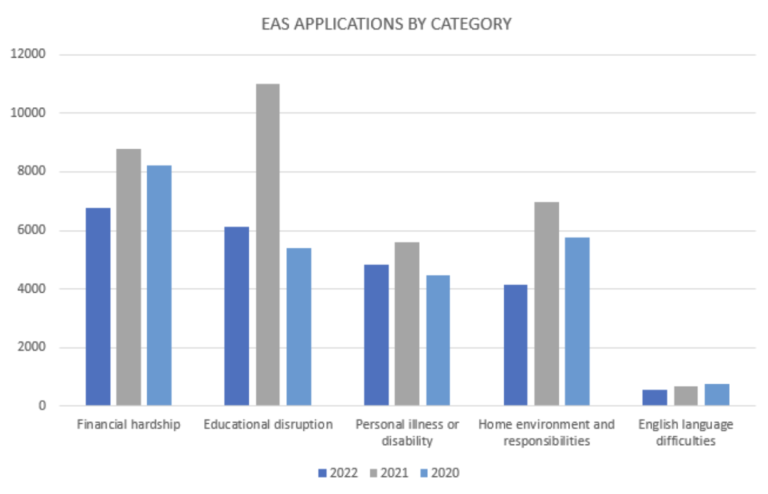Using data analytics to support EAS applicants most in need
Posted on Oct 10, 2022 | In Blog, Institution Staff, School Staff
It is often the most disadvantaged applicants who struggle to fully document their Educational Access Scheme (EAS) claims and face missing out on a place in their preferred course. QTAC is making innovative use of data analytics to enable our EAS team to provide targeted, individual support to those EAS applicants most in need.
EAS is an evidence-based scheme and to be considered for a selection rank adjustment based on educational disadvantage, applicants must provide all the required supporting documents. The rate of undocumented EAS applications has been around 40% for some years (41.6% in 2022) and insufficiently documented claims often account for 15 to 20% of EAS applications.
Data analytics allows QTAC to identify and to offer targeted help to those EAS applicants who will likely need an adjustment to be competitive. This has led to measurable improvement in EAS documentation and is helping applicants get across the line for an offer.
About EAS
QTAC’s Educational Access Scheme (EAS) helps tertiary applicants by providing a selection rank adjustment for eligible applicants whose recent study was impacted by financial or personal challenges.
Before you apply:
- Read the EAS guidelines, FAQs and Case Studies.
- Check your eligibility for nominated categories.
- EAS is an evidence-based scheme so you must provide all the required supporting documents.
- If you cannot provide the documentation please submit a statement explaining why.
More details about the EAS scheme, including helpful FAQs, can be found on the QTAC website, or you can contact us at QTAC for assistance on PH: 1300 467 822.
If you are interested in a QTAC Presentation to support Year 12 students or QTAC Applicants and you are representing a school – please email presentations@qtac.edu.au with EAS Presentation in the subject line and a team member can provide you with more information.



